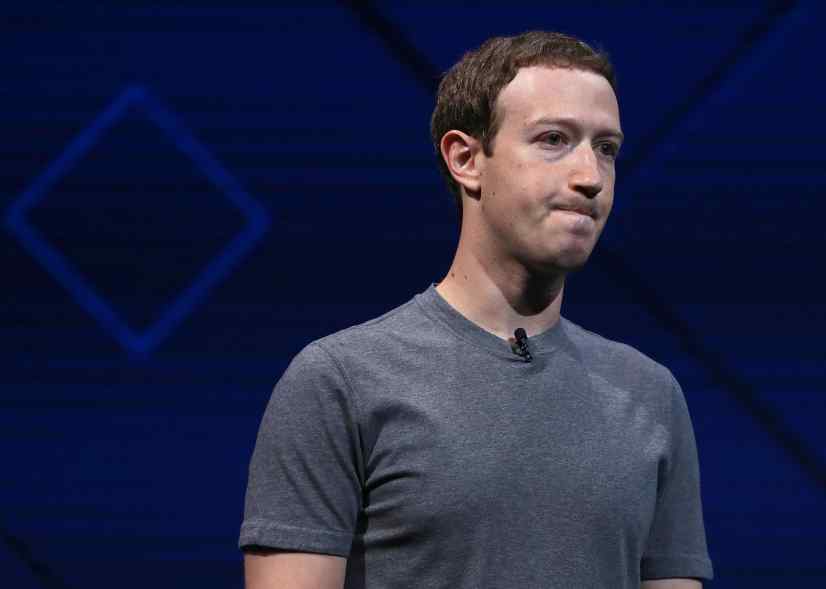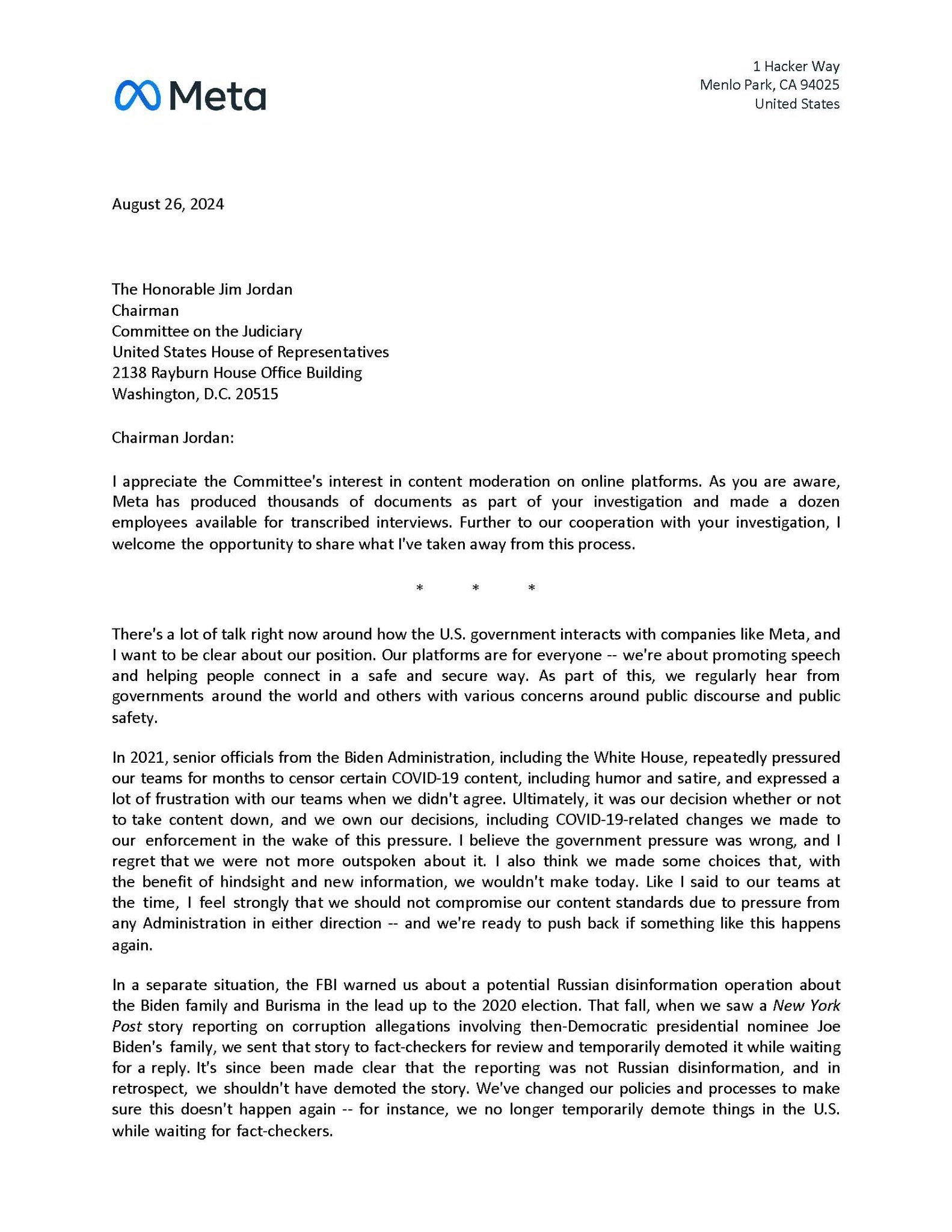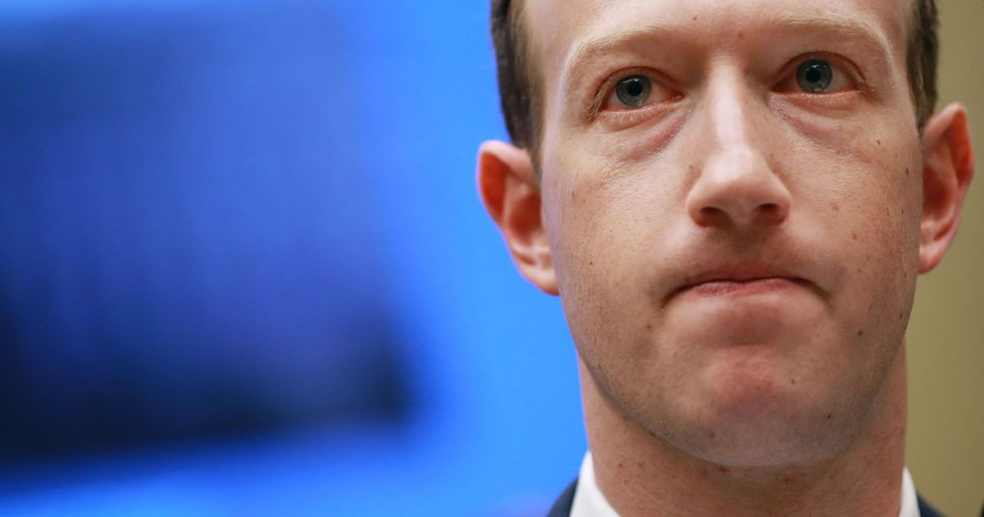Zuckerberg admits FBI disinformation warning, now proven to be false, led to Meta content censorship

In a letter to Congress dated August 26, Zuckerberg expressed regret over Meta’s actions in limiting discussions, including humor and criticism, related to the pandemic, vaccines, and lockdowns. He revealed that Meta had been under significant pressure from the Biden-Harris administration to suppress certain content.
Zuckerberg acknowledged that top officials in the Biden administration had repeatedly pushed Meta to censor specific COVID-19 content. He added that he would resist such pressure in the future.
Speaking to the U.S. House Judiciary Committee, Zuckerberg expressed regret for not addressing this pressure sooner and for some decisions made by Facebook, Instagram, and WhatsApp in removing certain content.
“In 2021, senior officials from the Biden Administration, including the White House, repeatedly pressured our teams for months to censor certain COVID-19 content, including humor and satire, and expressed a lot of frustration with our teams when we didn’t agree,” Zuckerberg wrote in the letter, which was posted by the Committee on the Judiciary on its Facebook page.“I believe the government pressure was wrong, and I regret we were not more outspoken about it,” he wrote. “I also think we made some choices that, with the benefit of hindsight and new information, we wouldn’t make today.
In the letter, Zuckerberg described the government pressure as misguided and voiced regret for Meta’s silence on the issue. He also admitted that, with hindsight, some decisions might have been handled differently.
Addressed to Representative Jim Jordan, the committee’s chairman, the letter was highlighted by the Judiciary Committee as a victory for free speech. The committee noted Zuckerberg’s admission that Facebook had indeed censored American users.
Zuckerberg also stated that he would refrain from making any contributions to electoral infrastructure in this year’s presidential election, aiming to remain neutral. During the 2020 election, his $400 million contribution to election infrastructure through the Chan Zuckerberg Initiative sparked criticism and legal challenges, with some accusing the move of partisanship.
In addition to government pressure, Zuckerberg detailed the role of the FBI in downplaying the Hunter Biden laptop story to prevent it from influencing the 2020 election. He explained that the FBI had warned Meta about potential Russian disinformation concerning the Biden family, which led Meta to temporarily demote the New York Post’s story while it was fact-checked.
Zuckerberg explains:
“In a separate situation, the FBI warned us about a potential Russian disinformation operation about the Biden Family and Burisma in the lead-up to the 2020 election. That fall, when we saw a New York Post story reporting on corruption allegations involving then-Democratic Presidential candidate Joe Biden’s family, we sent that story to fact-checkers for review, and temporarily demoted it while waiting for a reply.
Zuckerberg admitted that the FBI’s warning was inaccurate and that Meta should not have demoted the story. He assured that Meta has since revised its policies to prevent similar occurrences, including ending the practice of temporary demotion while awaiting fact-checking in the U.S.
” It’s since been made clear that the reporting was not Russian disinformation, and in retrospect, we shouldn’t have demoted the story. We’ve changed our policies and processes to make sure this doesn’t happen again – for instance, we no longer temporarily demote things in the U.S while waiting for fact-checkers.”
In 2022, Zuckerberg told Joe Rogan during an interview that Facebook algorithmically censored Hunter Biden’s laptop story after an FBI request.






